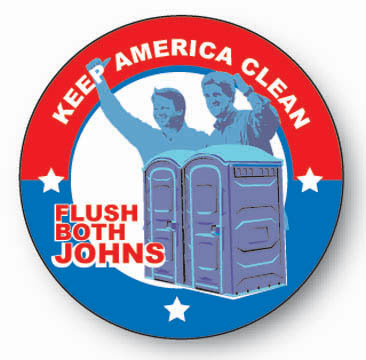CSC 379 SUM2008:Week 1, Group 2
Political Uses of Spam for Special Interests and Influencing Elections
Acts of defamation through spam and chain letters present many ethical concerns and can have significant impacts on the public perception of political issues, candidates, or can be used as a medium to spread misinformation to surreptitiously influence elections. Provide an overview of the ways spam and chain letters can be used to influence politics, providing a brief review of the ethical concerns each raises, and links to online resources that cite specific instances or effects of each. Also briefly examine legal and ethical considerations in regulating political spam.
http://technology.newscientist.com/article/dn12754-hackers-could-skew-us-elections.html
Spam and Chain Letters in Politics
Acquiring votes by e-mail is a logical extension of campaigning by telephone or mail, and is nothing but marketing for political ends. Whenever the e-mails are unsolicited, they qualify as spam. They can be sent by, on behalf of, or without any knowledge by, the favoured party or candidate. Young politicians and older statesmen, are coming up with savvy ways of using spam and chain letters to influence or communicate with large audiences. Spam campaigns have become increasingly more popular on a national level and even on local political levels. With the technology readily available it would make sense for politicians to utilize this as a resource to reach a certain demographic audience or a broad range of its constituents.
With this new power to connect with voters and constituents also comes with the ability to abuse this power. In a completely ethical world political figures would only spam those who have agreed to receive such emails. And the content of the spam would be truthful and relevant to the reader. In reality this is not the case. Many people in the city of Pittsburgh for example, complained about receiving several spam emails from a candidate for mayor which they did not request. Even after complaining and requesting to be removed from the list the spam still came in. It was later determined that someone who didn't work for the mayors office entered these peoples emails through a web form off the mayors website.
Another form of spam in the political realm is done by independent groups or individuals. Some of the more famous instances of political spam were during the 2004 presidential elections. These messages can be as caustic as they are humorous. One shows a photo of two toilets marked Kerry and Edwards with the sign, "Flush The Johns." A bogus e-mail from "George W. Bush" recites a "résumé" with embarrassing disclosures.
